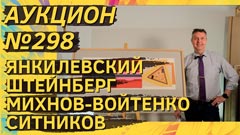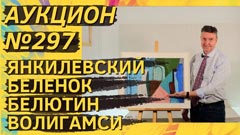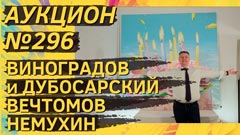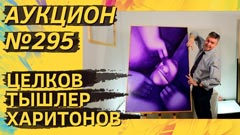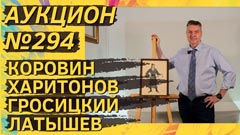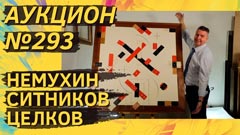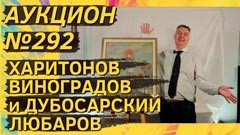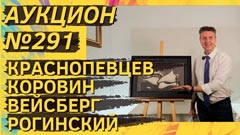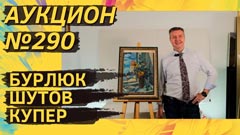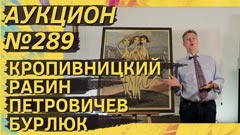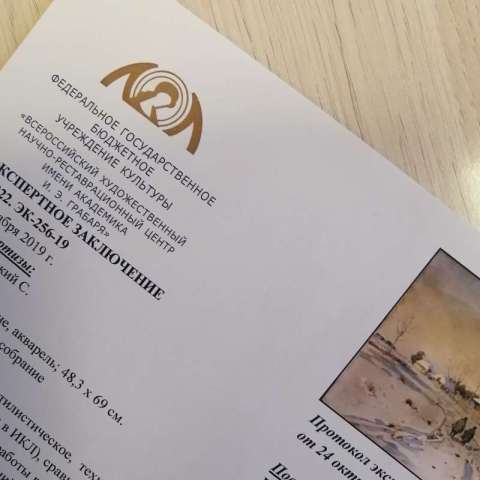
Online bidders must have noticed that in the description of some lots there is the phrase “Verbal confirmation of such-and-such expert” or “Verbal confirmation of the artist's widow”. In what cases and why is it written?
I explain.
Verbal confirmation means that the authenticity of the work has been verified, but an official expert opinion (paper with signature and seal) has not been issued at the time of sale. And it is recommended to do this to the buyer immediately after purchase.
In practice, we are talking about the fact that we showed the work put up for our auction to an expert and/or specific heirs who are well versed in the work of this artist and to whom the market has confidence. And we received confirmation not from hearsay, but personally from an expert or heir.
Why did the sellers (owners of the works) not immediately issue the paper?
Expertise (paper opinion) costs money. From 10,000 to 60,000 rubles. And there are more, depending on the complexity of the task. The owner of the work who gives it to the organizer for auction usually needs money and is not willing to invest additional money in selling the work. In addition, there is no guarantee that the work will find its buyer and the costs of the examination will pay off. In some cases, there is a specific problem of economic expedience. For example, a drawing costs 30,000 rubles, and an expert examination plus another 10,000 rubles. And here it is already necessary to think twice. And it's not just about money. Getting an opinion is also a lot of organizational work. It is clear that many sellers reason like this: “If it is important for the buyer to have paper, then let the buyer do it at his own expense”.
Do I need to draw up an expert opinion (paper) if the work was purchased with verbal confirmation?
A natural question. If everything is okay, then why? Nevertheless, our advice is unequivocal: “Yes, after a purchase with verbal confirmation, we advise the collector to pay for the paper immediately”. There are several reasons. First, this is the best moment. All organizational work to confirm the authenticity has already been carried out, all the data is ready, the information is fresh in the memory, the expert has just seen the work. Hot on the heels, it is always easier to complete such questions. And, secondly, the presence of paper will greatly (sometimes very much) simplify the process of further resale of the purchased work. If you want to sell it later at another auction, they will ask for expertise. And it is not a fact that another auction will again be puzzled by verbal confirmation. The demand for paintings and drawings with published expertise is always higher. After all, such works are interesting not only for knowledgeable professionals, but also to a wide range of collectors.
Why is the phrase “Verbal Expert Confirmation” written on some works without expert examination, while on others it is not?
There are a number of artists who are most often forged. And their works cannot be sold without additional expert verification. For example: Zverev, Yakovlev, Nemukhin. Too many fakes. Moreover, with regard to the authenticity of these authors, the market trusts specifically Valery Silaev. Other papers will not work. There are a number of other artists whose works must be carefully checked through heirs and experts. And there are modern authors, now living, works with "iron provenance", which do not require verbal confirmation by experts. Each situation is considered separately.
Let me summarize.
The phrase “Verbal confirmation by an expert” in the auction description in practice means the following:
- We (the organizers of the auction) showed the picture to a specialized expert in order to additionally make sure that everything is in order with it.
- After purchase, the buyer is advised to pay additionally and receive a written expert opinion in his hands. In common cases (for example, for works of the nonconformist artists of the first row), an examination costs in the region of 10,000 rubles or so. For Russian classics — about 50,000 rubles. It is approximately. Specifically depends on the complexity.
- Works with a written expert opinion are in higher demand for subsequent resale. And for investment works, a paper conclusion of a specialized expert (namely, a profile expert — this is important!) is actually mandatory.
Vladimir Bogdanov, specialist of ArtSale.info Auction
- Log in to post comments

